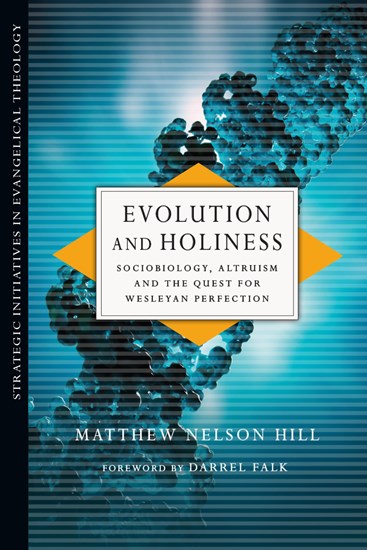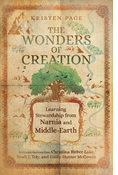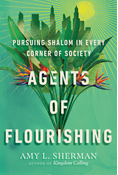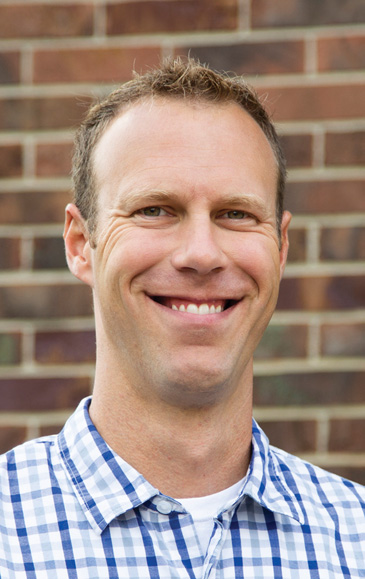
|
Evolution and Holiness
ebook
|
- Length: 251 pages
- Published: February 17, 2016
- Imprint: IVP Academic
- Item Code: 9900
- ISBN: 9780830899005
-
Other Retailers:
Amazon*
*affiliate partner
-
paperback
Theology needs to engage what recent developments in the study of evolution mean for how we understand moral behavior. How does the theological concept of holiness connect to contemporary understandings of evolution? If genetic explanations of altruism fall short, what role should we give to environmental explanations and free will? Likewise, how do genetic explanations relate to theological accounts of human goodness and holiness?
In this groundbreaking work, Matthew Hill uses the lens of Wesleyan ethics to offer a fresh assessment of the intersection of evolution and theology. He shows that what is at stake in this conversation is not only the future of the church but also the fine-tuning of human evolution.
"When it comes to explanations of human nature and proclivities, science and theology often find themselves talking past each other, so it may be difficult to imagine a conversation with evolutionary biology about the profoundly theological notion of holiness. Matthew Hill not only imagines it but exemplifies it, working deftly with sociobiology and Wesleyan theology in a way that brings the two into a fruitful interaction focused on divine grace working within the restraints of creation. We are indebted to Hill for this fine display of science-faith dialogue and robust emphasis on the centrality of the church and its practices for Christian formation."
"At a time when scientific creationists and intelligent design theorists remain mired in nineteenth-century disputes about evolution, Matthew Nelson Hill's Evolution and Holiness moves the conversation about Darwin's controversial theory into the twenty-first century. Lamenting that 'not many theologians have examined the evolutionary data for relevance to "loving thy neighbor,"' Hill develops powerful and deeply meaningful connections between John Wesley's doctrine of Christian holiness and scientifically informed understandings of our evolved human nature. The result is a tour de force of creative theological exploration that deserves to be widely read."
"So many Christian books on evolution are purely defensive. Here Matthew Hill has both critique and constructive dialogue with cutting-edge science, showing how theology—and Wesleyan theology in particular—can both contribute to and learn from science in the exciting pursuit to be fully human."
"Theology and science have valuable insights to offer each other in understanding the origins and development of human moral and religious sentiments. Matthew Hill makes an important contribution by clearly summarizing some of the recent science on the evolution of human behavior, critiquing the materialistic philosophical extensions that are sometimes added to the science and then showing how theologically inspired practices from the Wesleyan tradition synergize with recent scientific work."
"'Having trouble living the holy life? You just need to try harder!' Unfortunately, many Christians hear this message. 'Just try harder,' however, ignores the powerful role our bodies—including our genes and the body of Christ, Christian community—must play in following Jesus' command to be holy. In this book, Matthew Nelson Hill explores the sociobiological roots of human behavior, including the constraints we all face. Along the way, Hill helps us understand altruism and generosity in ways that make sense scientifically, theologically and experientially. He argues that loving communities and their practices stand the best chance in helping us walk the highway of holiness."
"John Wesley insisted that the most compelling evidence for (1) the integrity of human choice and (2) the possibility of authentic love of God and neighbor was the life of a Christian saint, but he also recognized the value—yea, the necessity—of contesting scientific accounts of human nature and action that appeared to undercut these convictions. Matthew Hill's engagement with sociobiology is an insightful continuation of this apologetic task, defending the possibility of and offering wisdom toward the nurturing of Christian saints in our day."
"What a good book! Hill's study moderates the best kind of dialogue between faith and science in which a fluent assessment of the discipline of sociobiology (in his case) interacts with a faithful understanding of John Wesley's pivotal doctrine of Christian perfection (holiness) to produce a deepened understanding of the gains of science and the practice of faith. This book exemplifies, then, a way forward in the mostly messy slugfest between faith and science that typifies this dialogue in the secular academy and evangelical church. I highly recommend Hill's programmatic discourse to faculty and clergy alike."
"What a good book! Hill's study moderates the best kind of dialogue between faith and science in which a fluent assessment of the discipline of sociobiology (in his case) interacts with a faithful understanding of John Wesley's pivotal doctrine of Christian perfection (holiness) to produce a deepened understanding of the gains of science and the practice of faith. This book exemplifies, then, a way forward in the mostly messy slugfest between faith and science that typifies this dialogue in the secular academy and evangelical church. I highly recommend Hill's programmatic discourse to faculty and clergy alike."
CONTENTS
Foreword by Darrel R. Falk
Acknowledgments
Chapter 1: Introduction
1.1 The Aim of This Study
1.2 Brief Summary of Main Chapters
1.3 What Is at Stake?
1.4 Brief Clarifications Before Main Chapters
Chapter 2: Sociobiological Explanations of Altruism
2.1 An Introduction to Biological Altruism
2.2 Sociobiological Altruism: From Darwin to Dawkins
2.3 Moving Forward
Chapter 3: Altruism and the Explanatory Limitations of Evolution
3.1 The Environment and Its Influence on Human Behavior
3.2 Problematic Language
3.3 Reductionism and Its Relationship to the Explanation of Altruism
3.4 A Reductionist-Driven False Opposition Between Philosophy/Theology and Sociobiology
3.5 Conclusion
Chapter 4: Overcoming Genetic and Environmental Constraints on Altruism
4.1 The Determined Human Person?
4.2 The Human Person as Influenced but Not Determined
4.3 Humans Are Genuinely Free and Consequently Responsible
4.4 Conclusion
Chapter 5: Wesleyan Holiness Against a Backdrop of Evolution
5.1 The Quest for Holiness
5.2 Genetic Selfishness and Its Implications for Wesleyan Ethics
5.3 Conclusion
Chapter 6: How Wesley Nurtured Altruism Despite Biological Constraints
6.1 Wesley?s Structure and Organization
6.2 How Wesley Understood and Nurtured Altruism by Way of Holiness
6.3 Environmental Constraints That Temper Biological Constraints
6.4 Conclusion
Chapter 7: A Lifestyle of Holiness
7.1 Brief Summary of Main Chapters
7.2 Holiness Outside the Wesleyan Community
7.3 Practical Implications and Further Explorations
7.4 Conclusion
Appendix 1:Excerpt from "Principles of a Methodist" on the Topic of Christian Perfection
Appendix 2: Excerpt from "A Plain Account of Christian Perfection"
Appendix 3: Rules of the Band Societies--Drawn Up Dec. 25, 1738
Bibliography
General Index
You May Also Like













